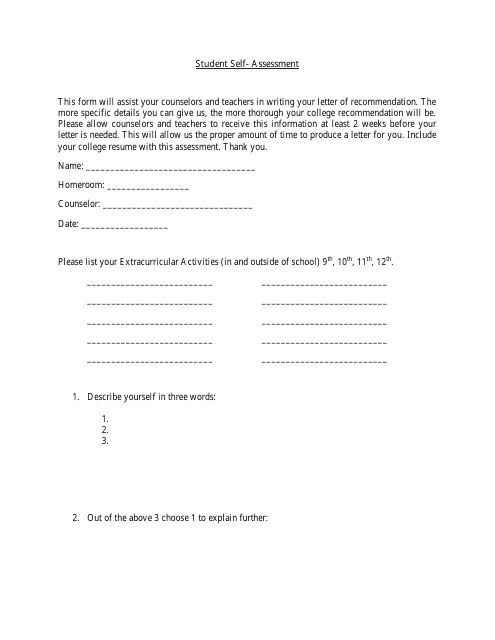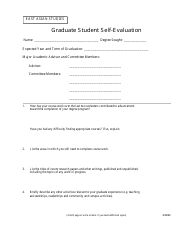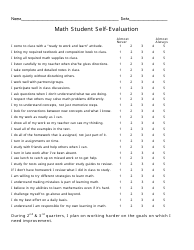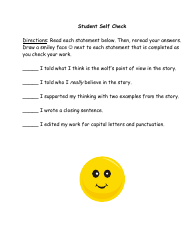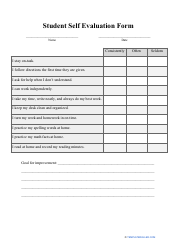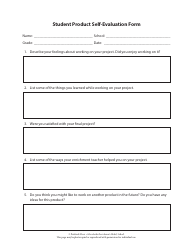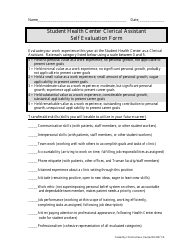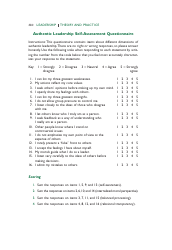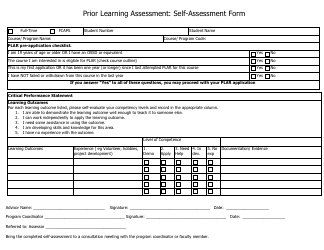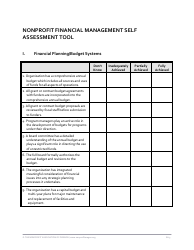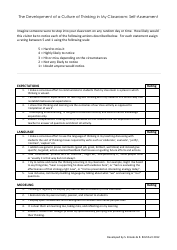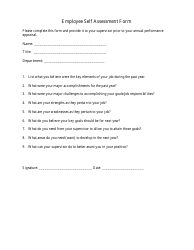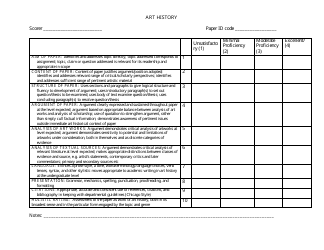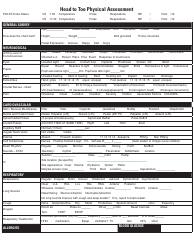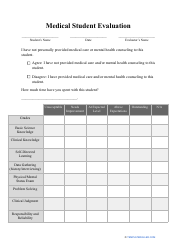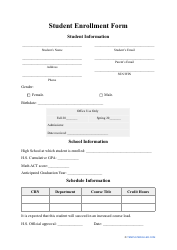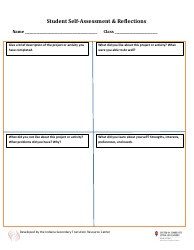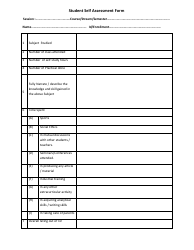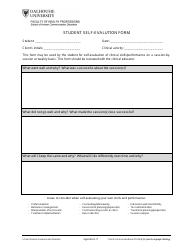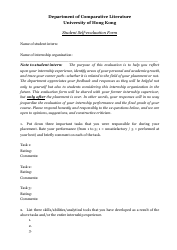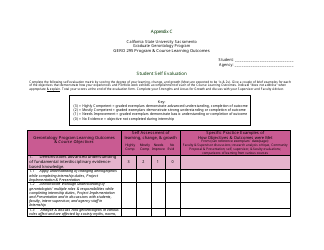Student Self-assessment Form
The Student Self-assessment Form is used to gather feedback from students about their own progress, understanding, and learning experiences. It helps students reflect on their own learning and set goals for improvement.
The student themselves typically file the student self-assessment form.
FAQ
Q: What is a student self-assessment form?
A: A student self-assessment form is a tool that allows students to reflect on their own learning and progress.
Q: Why is self-assessment important for students?
A: Self-assessment helps students develop a better understanding of their strengths and weaknesses and take ownership of their own learning.
Q: What are the benefits of using a student self-assessment form?
A: Using a student self-assessment form can help students identify areas for improvement, set goals, and track their progress over time.
Q: What types of questions are usually included in a student self-assessment form?
A: A student self-assessment form typically includes questions that ask students to evaluate their understanding of the material, their effort and work habits, and their overall performance.
Q: How can teachers use student self-assessment forms?
A: Teachers can use student self-assessment forms to gather feedback and insights from students, identify areas where additional support is needed, and adjust instruction accordingly.
Q: Is student self-assessment the same as grading?
A: No, student self-assessment is not the same as grading. Self-assessment focuses on students reflecting on their own learning and progress, while grading is typically determined by the teacher.
Q: Can student self-assessment forms be used in all subject areas?
A: Yes, student self-assessment forms can be used in all subject areas to promote self-reflection and a deeper understanding of the material.
Q: How often should students complete a self-assessment?
A: The frequency of student self-assessment can vary, but it is beneficial to have students complete self-assessments periodically throughout the year to track their progress and growth.
